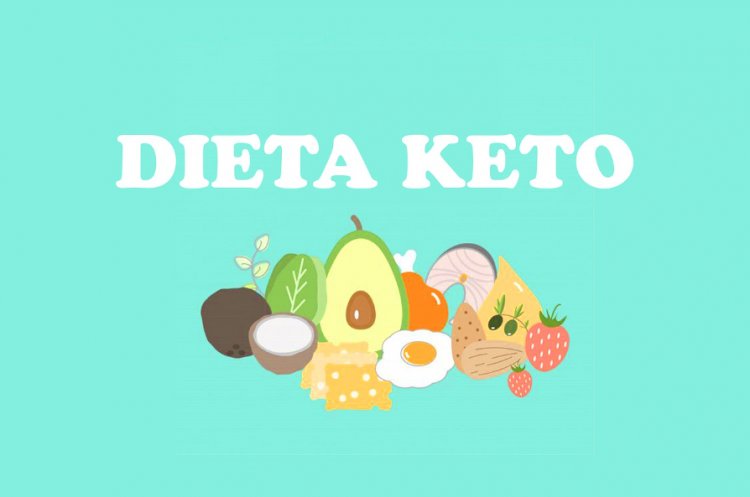Understanding the Ketogenic Diet: A Comprehensive Guide
The ketogenic diet, or keto diet, is a high-fat, low-carbohydrate eating plan that has gained popularity for its potential health benefits and weight loss effects. In this comprehensive guide, we will delve into the science behind the ketogenic diet, its potential benefits and risks, how to follow it properly, and tips for success.

The Ketogenic Diet: A Comprehensive Guide
-
What is the Ketogenic Diet?
The ketogenic diet is a low-carb, high-fat eating plan designed to induce a metabolic state called ketosis. In ketosis, the body shifts from using carbohydrates as its primary fuel source to utilizing fat and ketones for energy. This metabolic switch can lead to various health benefits, including:
- Weight Loss: By promoting fat burning and reducing appetite, the ketogenic diet can result in significant weight loss.
- Improved Blood Sugar Control: The keto diet may stabilize blood sugar levels and enhance insulin sensitivity, making it beneficial for individuals with type 2 diabetes or prediabetes.
- Enhanced Mental Clarity: Many people report improved focus and mental clarity on a ketogenic diet due to stable energy levels and ketone production.
- Epilepsy Management: The ketogenic diet has been used for decades as a therapy for drug-resistant epilepsy, particularly in children.
-
How Does the Ketogenic Diet Work?
On a ketogenic diet:
- Carbohydrate Intake is Drastically Reduced: Typically to less than 50 grams per day.
- Body Burns Stored Fat for Fuel: This process produces molecules called ketones in the liver.
- Ketones Serve as an Alternative Fuel Source: They provide sustained energy levels even in the absence of carbohydrates.
-
Potential Benefits of the Ketogenic Diet
Weight Loss
The ketogenic diet’s fat-burning mechanism can lead to significant weight loss.
Improved Blood Sugar Control
Stabilizing blood sugar levels and enhancing insulin sensitivity benefit individuals with type 2 diabetes or prediabetes.
Enhanced Mental Focus
Stable energy levels and ketone production contribute to improved mental clarity and focus.
Epilepsy Management
The ketogenic diet remains a valuable therapy for drug-resistant epilepsy, especially in children.
-
Risks and Considerations
Nutrient Deficiencies
Restrictions on certain food groups (such as fruits and grains) may lead to deficiencies in essential vitamins, minerals, and fiber.
Keto Flu
During the initial transition to ketosis, some experience flu-like symptoms, fatigue, and headaches (known as the “keto flu”).
Long-Term Sustainability
The restrictive nature of the ketogenic diet can make long-term adherence challenging, potentially leading to rebound weight gain.
Remember, before starting any diet, consult with a healthcare professional to ensure it aligns with your individual health needs.
5. How to Follow the Ketogenic Diet
The ketogenic diet is a powerful tool for weight loss, improved blood sugar control, and enhanced overall health. To successfully follow this low-carb, high-fat eating plan, consider the following steps:
6. Focus on Low-Carb, High-Fat Foods
- Healthy Fats: Include plenty of avocados, olive oil, nuts, seeds, and fatty fish in your diet. These fats provide sustained energy and support ketosis.
- Moderate Protein Intake: Opt for moderate protein sources such as poultry, eggs, tofu, and cheese. Excessive protein consumption can hinder ketosis.
- Limit Carbohydrates: Minimize high-carb foods like grains, starchy vegetables, fruits, and sugary snacks. Staying within your carb limit is essential for ketosis.
7. Tips for Success on the Ketogenic Diet
- Stay Hydrated: Proper hydration is crucial, especially during the initial stages of ketosis. Drink plenty of water throughout the day.
- Monitor Ketone Levels: Use ketone testing strips or a blood ketone meter to track your ketone levels. Being in ketosis ensures fat burning.
Plan Ahead: Meal prep and planning can help you adhere to the ketogenic diet. Prepare keto-friendly meals and snacks to avoid temptation.
In Conclusion
While the ketogenic diet offers promising benefits, it may not be suitable for everyone. Before embarking on any new diet plan, consult with a healthcare professional or registered dietitian to ensure it aligns with your individual health goals and needs. Remember, personalized guidance is essential for success.
What's Your Reaction?





















